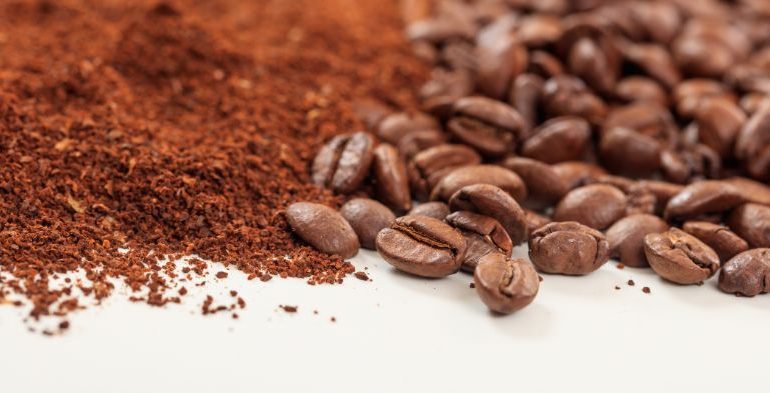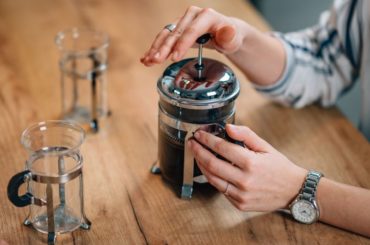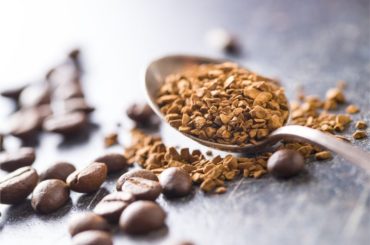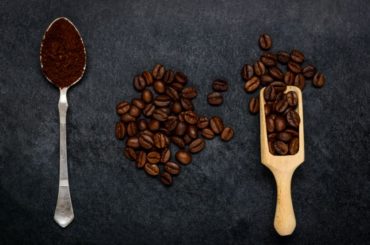If you have both an espresso machine and filter coffee then you might be wondering whether or not you can use filter coffee to make espresso.
This post will show you whether or not you should do it, how to do it and alternative coffee types to make espresso with instead.
So, can you use ground coffee in an espresso machine? Yes, you can use ground coffee in an espresso machine. However, the grind size might not be fine enough so it could result in the espresso tasting sour.
Since ground coffee is designed to be used to make regular coffee with there are some things that you should do to get the most out of it when using it to make espresso.
Using ground coffee in an espresso machine
Espresso machines create espresso by forcing hot and pressurized water through finely ground coffee. Since the hot water is in contact with the ground coffee for a short time period it is necessary for the coffee to have a very fine grind size.
This is because a fine grind size means that more of the coffee will come into contact with the water due to a greater surface area and there will be smaller gaps between the coffee meaning that the water will take longer to pass through it.
Pre-made ground coffee will generally have a coarse (not fine) grind size. This is because ground coffee is designed to be used to make coffee with which tastes better when made with more coarse coffee.
By using ground coffee to make the espresso the water will pass through it quickly and it will come into contact with less of the coffee. The result of this is likely to be that the espresso will taste watery and sour.
If you have access to a grinder then one option would be to just grind the ground coffee more finely.
However, there are a number of other things that you can do to reduce how sour the espresso will taste if you use pre-ground coffee to make it.
One way to reduce the sourness of the espresso would be to tamp the grind more forcefully. Tamping is where you press down on the coffee grind when it is in the portafilter so that it is compact and flat. Ordinarily, you wouldn’t want to tamp too hard since it can cause the espresso to be bitter.
However, if you are using ground coffee that is coarse then tamping more forcefully will help to make it more difficult for the water to pass through it. This should result in more of the oil from the coffee mixing with the water and giving you a less sour espresso.
The next option would be to use hotter water than usual. By using hotter water it will result in more of the coffee mixing with the water and cause it to be less sour. However, don’t make the water too hot since it could cause the espresso to taste burnt. Generally, it is recommended that you make the temperature of the water be between 195 and 205 Fahrenheit.
Another option would be to make a ristretto instead of an espresso. A ristretto is an espresso that has been made using less water than usual. This gives a stronger tasting espresso that can sometimes be bitter. If you use ground coffee to make it then it would likely come out tasting more like a regular espresso that is smaller in volume.
What to do instead
Instead of using ground coffee to make the espresso you could get espresso coffee that has been specifically roasted and ground to be optimal for making espresso with.
You could also get the beans roasted but not ground and grind them yourself. The grind size is actually one of the biggest factors that will impact the taste of the espresso. By being able to control the grind size you will be able to control the way that your espresso tastes much more easily by grinding more finely or less coarsely.
Things to consider when buying coffee beans for espresso
When buying coffee beans or pre-ground coffee for espresso there are a number of things, that will impact the taste of the espresso, you should be aware of.
The type of coffee beans will have an impact on the taste of the espresso. There are two main types of coffee beans that you can get and they are Arabica and Robusta coffee beans.
Robusta coffee beans are easier to grow so they are generally cheaper than Arabica beans. Robusta beans tend to have a nutty, strong and bitter taste that some people find to be too strong.
Arabica beans are more expensive since they need to be grown at higher altitude and the trees that they grow on are more disease prone. However, they are very popular since they give a smoother taste.
Since espresso is supposed to have a slightly bitter taste a blend of the two leaning more towards Robusta beans is what is recommended.
The type of roast that the beans have will also impact the way that the espresso tastes.
If the beans have a lighter roast then it will normally give the espresso a less strong flavor. However, they can often result in the espresso tasting slightly sour. Beans with a dark roast will generally give the espresso a stronger taste but they can be bitter or even burnt tasting.
When making espresso beans with a dark roast are the more popular option.
The origin of the beans can also impact the taste. If the beans are from a single origin then it will normally give the espresso a sharper taste but it can also cause them to be sour tasting. Whereas, beans that are from multiple origins will normally have a more balanced taste.
Of course, taste is subjective so it would be worthwhile for you to experiment with different types of beans to see what you like best. However, If you’re unsure then the most common combination would be a blend of beans from different origins, that are a mix of Robusta and Arabic that have a dark roast.
Related
Can you use filter coffee to make espresso with? You can use filter coffee to make espresso. However, filter coffee tends to have a coarse grind which is not ideal for making espresso with. This could cause the espresso to have a slightly sour taste.





